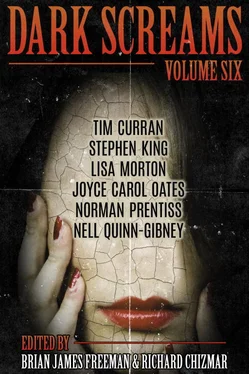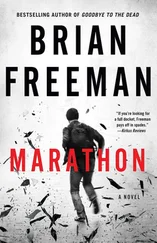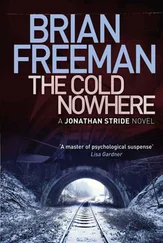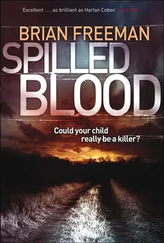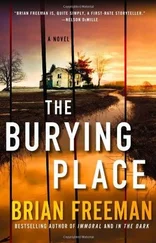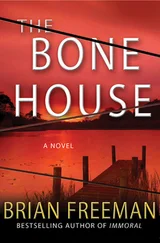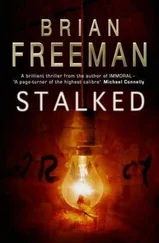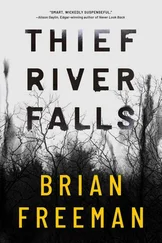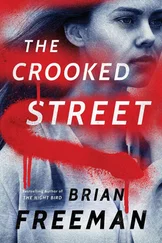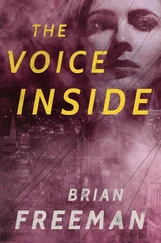Clow stepped into the room, seeing his obese mother on her feet, swollen ankles, goiter, and all, stumbling about and trying to stab Kierney, who was laughing and merrily dancing away from her.
“All right, knock it the fuck off,” he said.
They both stopped.
Swearing, the Widow Clow sank back into her chair with a thud that shook the table. Kierney acted like he could barely keep on his feet in the aftershock. “Like some great whale has dropped from the sky,” he said.
The Widow Clow snarled and threw the knife at him. It missed him but stuck right into the rotting woodwork, the handle quivering.
“Now, why ye got to go and get me mother all worked up,” Clow said, smiling. “Leave the fine, fat, murdering whore to her own devices.”
The widow scowled at her son. But with only two blackened teeth left in her gums, the effect was almost comical. “Ye randy shit, I shoulda drowned ye when I had the chance! Filthy grave-robbing scum! I gave me life for you! I ruined me mind and ruined me body trying to raise ye proper and this be me thanks! Turning me fine house into a graveyard! Me cellar into a morgue! And who washes them bodies ye fish from them dank holes, eh? I do! I wash away the grave dirt and worms, and this is how ye treat me, ye dirty buggering filth! I curse the day I lay with yer father! I curse the day I squeezed ye out! Had half a mind, I’d bring the police in here! Let ’em hang ye, I would!”
Clow was not smiling now.
Something dark and unforgiving had settled over his face. He stepped over to the Widow Clow, pulling a long skinning knife from his coat. “The police, Mother? Ye’d call them fucking peelers on me, would ye?” He brought the knife to within inches of her good eye. “Is that what ye’d do?”
“Sammy—” Kierney began.
“Family business, son, that’s all this is. See, me mother would sell her only son to them peelers and that gets me to thinking I’ve got room for one more down in me workshop.”
The Widow Clow was afraid of no one. She did not back down from man or woman or rabid dog. She ran a house for rough, desperate men in the dirtiest gutter of Edinburgh. But there was fear now in her one eye, and whether that was because her son was capable of matricide or she feared the very idea of him leaving her alone in the world, it was hard to say.
“But I was only rambling, son of mine,” she said. “Surely I’d not sell ye off.”
“There’s a girl,” Kierney said.
Clow put the knife away. “Ye be careful, Mother, speaking like that. Why, there’s resurrectionists in this town that kill for far less.”
The Widow Clow pulled off her gin. “I needed to talk to ye, son. Johnny Sherily was around to see ye early this morning. He said the peelers might be wanting to a-speak with ye.”
Clow glared at her. “And about what?”
“About Ian Slade and his brother, Andy the Piker. Word has it ye brandished yer knife at Slade over to the Grassmarket when they strung Leaky Baker. Threatened him like, they say.”
Clow remembered. But it had been only a defensive measure of sorts. Slade had been drunk and ugly and looking for a fight. “Aye, but it was nothing but a display amongst friends.”
The widow spit tobacco juice into a brass spittoon. “Mayhap it was, but folk in the crowd remembered, Johnny say’d, and they told them peelers all about it.”
Kierney sat forward now. “But there was no harm done… why would the police be interested in that? About Ian and his brother?”
“Because they’re gone, vanished into the night.” She looked from Clow to Kierney. “Johnny say’d there were no foul play, but something worse. He say’d they’d gone up to the North Burial Grounds to fish out a corpse… only they never came back out…”
14
“We’ll do it, Mickey, to prove to ourselves that we’ve not a lick to fear about,” Clow said later that night as he steered Old Clem down the sooty byways of Edinburgh.
“But the North Grounds…”
“Nothing to fear, friend, nothing to fear. Remember? It were the gas that made us see and hear that which were not there at all.”
Kierney nodded but did not look convinced.
The night was quiet. There was only the sound of Old Clem’s hooves on the wet cobblestones, the creak of the buckboard he towed. A few stray autumn leaves blew through the air. To either side, dark-gabled houses of stone and half-timber rose up, leaning out over the street until it seemed their sharp-peaked roofs would touch. They cast thick, reaching pools of shadow into the narrow, winding avenue. Lamps had been extinguished and shutters closed. Only drunks and dogs and rats prowled the lonely wynds now.
Other than grave robbers, that was.
It was November, and soon the ground would be like trying to dig through flint, so Clow figured it was best to lay in a supply of cadavers while they had the chance. Come winter and the snows, the digging was over. Bodies were stored in aboveground vaults and the competition to get at them could be fierce and often dangerous.
“But what of Ian Slade and his brother? Were no gas that made them disappear, Sammy Clow.”
“Rats.”
“Rats?”
Clow nodded. “I’m thinking it must be, Mickey. I told ye the story of me uncle Roy at Ramshorn Cemetery? How them rats had burrowed into that coffin from below?”
“Ye did.”
“Well, that’s what we got here and that’s why were going armed. Not just for the Watch, but for them rats.”
“Ye think rats killed Slade and his brother?”
Clow handed him the reins and packed his clay pipe. “Aye. Rats it were. But not just any rats. I heard tell from Casket Jack down at the Gray Goat about this Russian bark what run aground in the canal two centuries ago, spilled its cargo right over the wharf. She was boarded, but there weren’t no living men aboard, nothing but skeletons and piles of bone that had been gnawed and worried upon. She came aground one dark October night and those that saw her said that hundreds and hundreds of rats came running out… big and gray and red-eyed… the size of cats, they said.” He struck a match off his fingernail and lit his pipe, clouds of smoke wafting over his shoulder. “Now, hear me on this, Mickey, these were no ordinary ship’s rats. They were big and fierce and they had killed the men on that ship, stripped ’em right to bones, the evil bastards. I heard this same story or something like it from me uncle Roy.”
Kierney said, “Rats that kill men… and eat them? Oh, it’s a fable, Sammy. Them rats feed on the dead, sure enough, and they’ll attack ye if yer too weak to fight back… but to take down healthy, able men? It’s a fable, sure it is.”
But Clow shook his head. “No, ye’ve me word on this, me fine old friend. Rats. Rats what out of hell. So we’ve come prepared to deal them a hurt, just look in the back of the wagon. See what ye might there.”
Holding a kerosene lantern aloft, Kierney pulled back the tarps and spilled aside the shovels and picks. The navy flintlock pistols were there, of course, but they had been joined by some heavier artillery: a blunderbuss with folding bayonet and an army .50-caliber smoothbore musket. Both, he saw upon closer examination, primed and powdered. And next to them, wrapped in oilcloth, a ten-pound shank of pork and a wooden box filled with dead fish.
“What the hell, Sammy? Are we having ourselves a picnic tonight or are we fighting a war?”
Clow laughed. “The guns is to protect ourselves with. I’m thinking that blunderbuss can kill quite a few rats, its shot packed with tiny nails as it is. And the food? Well, don’t be handling it without gloves, for there’s enough strychnine in them goodies to kill a hundred men and mayhap a colony of evil rats.”
Читать дальше
